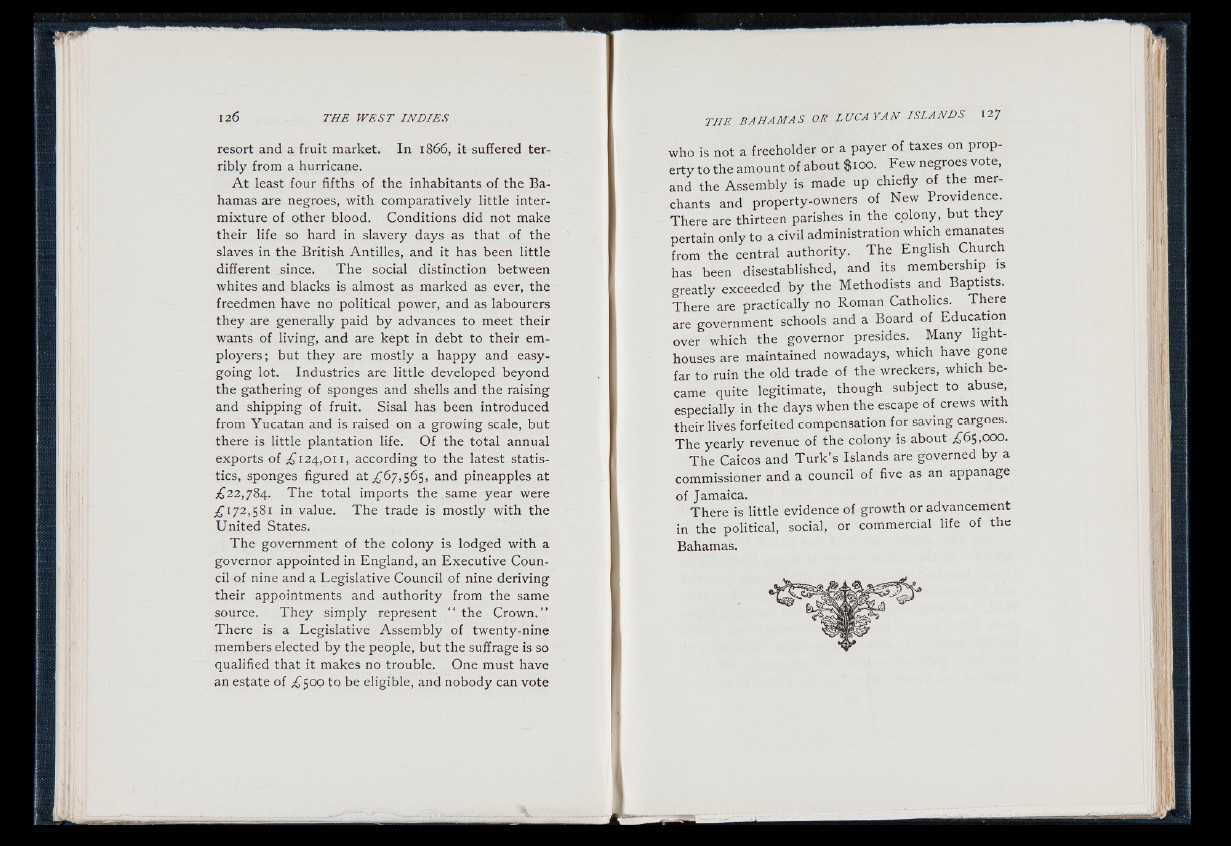
resort and a fruit market. In 1866, it suffered terribly
from a hurricane.
A t least four fifths of the inhabitants of the Bahamas
are negroes, with comparatively little intermixture
of other blood. Conditions did not make
their life so hard in slavery days as that of the
slaves in the British Antilles, and it has been little
different since. T h e social distinction between
whites and blacks is almost as marked as ever, the
freedmen have no political power, and as labourers
they are generally paid b y advances to meet their
wants of living, and are kept in debt to their employers;
but they are mostly a happy and easygoing
lot. Industries are little developed beyond
the gathering of sponges and shells and the raising
and shipping of fruit. Sisal has been introduced
from Yucatan and is raised on a growing scale, but
there is little plantation life. Of the total annual
exports of ¿ 12 4 ,0 1 1 , according to the latest statistics,
sponges figured at ¿67,565, and pineapples at
¿22,784. T he total imports the same year were
¿ 172 ,58 1 in value. T he trade is mostly with the
United States.
T he government of the colony is lodged with a
governor appointed in England, an Executive Council
of nine and a Legislative Council of nine deriving
their appointments and authority from the same
source. T h e y simply represent “ the Crown.”
There is a Legislative Assembly of twenty-nine
members elected by the people, but the suffrage is so
qualified that it makes no trouble. One must have
an estate of ¿500 be eligible, and nobody can vote
who is not a freeholder or a payer of taxes on property
to the amount of about $100. Few negroes vote,
and the Assembly is made up chiefly of the merchants
and property-owners of New Providence.
There are thirteen parishes in the colony, but they
pertain only to a civil administration which emanates
from the central authority. T h e English Church
has been disestablished, and its membership is
greatly exceeded by the Methodists and Baptists.
There are practically no Roman Catholics. There
are government schools and a Board of Education
over which the governor presides. ' Many lighthouses
are maintained nowadays, which have gone
far to ruin the old trade of the wreckers, which became
quite legitimate, though subject to abuse,
especially in the days when the escape of crews with
their lives forfeited compensation for saving cargoes.
The yearly revenue of the colony is about ¿65,000.
T he Caicos and T u rk ’ s Islands are governed by a
commissioner and a council of five as an appanage
of Jamaica.
There is little evidence of growth or advancement
in the political, social, or commercial life of the
Bahamas.